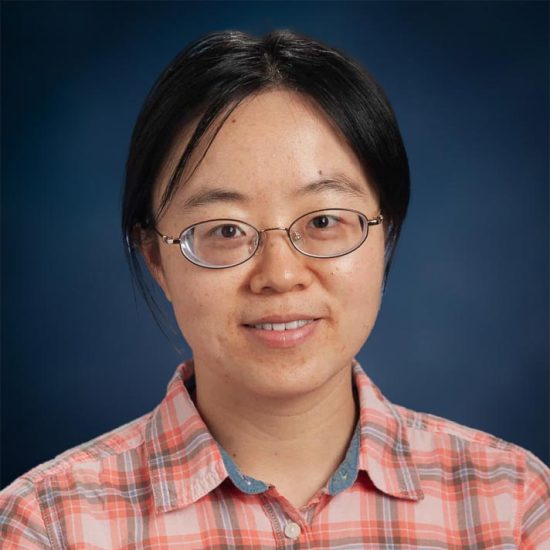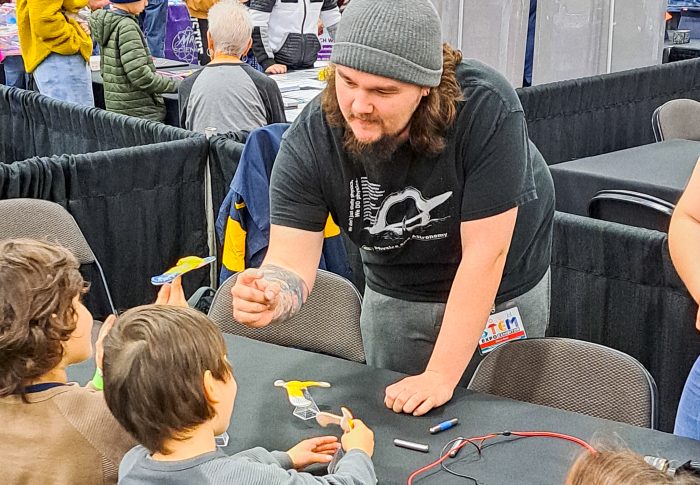The faculty and staff at A&M-Commerce are trying our best to help students to succeed.
Lin Guo, Ph.D. Associate Professor
- Faculty

A Conversation with Dr. Guo
What would you tell a student who is thinking about attending A&M-Commerce?
The faculty and staff at A&M-Commerce strive to help students succeed. Our environmental science program helps prepare students for careers related to environmental protection and remediation and pursue graduate degrees in the environmental protection field. Our environmental science program is interesting, practical and promising. Students in our program can get good jobs and have very bright futures!
What draws you to the environmental sciences?
I really enjoy teaching and doing research, especially in the field of environmental science. We only have one Earth! I hope my passion for environmental protection encourages students and inspires the realization that everybody has a responsibility to take action for protecting the environment for ourselves, for future generations and for other creatures.
What has been your favorite course to teach?
Introduction to environmental science is open at A&M-Commerce every semester for students from varied backgrounds, majors, grades and countries. It covers basic information about the environment, environmental pollution and environmental science.
Air pollution control introduces the effects of air pollutants on human beings and the environment, the sources of air pollution and the control of technologies and future trends toward preventing air pollution.
Bioremediation includes an overview of the bioremediation process and describes the typical bioremediation strategies for contaminated environments.
Tell us about a project you are currently working on or recently completed.
Broadly speaking, my research interests cover soil remediation, wastewater treatment and air pollution control. One of the principal areas I focus on is phytoremediation, which means the use of plants to remove, destroy or sequester contaminants from soil, water and air and to restore the contaminated environment. Some of my projects include utilizing plants like common reed and duckweed to uptake heavy metals such as Cu, Ni, Ba, Sr from wastewater and investigating the usage of resulting plant biomass for bio-oil or other valuable product generation are current research areas.
Educational Background
- Ph.D., Civil Engineering, The University of Akron, 2014
- M.S., Environmental Engineering, Nanchang University, China, 2008
- B.S., Environmental Engineering, Nanchang University, China, 2005
Academic Positions
- Associate Professor, Environmental Science, Texas A&M University-Commerce, 2020-present
- Assistant Professor, Environmental Science, Texas A&M University-Commerce, 2014-2020
- Teaching Assistant, The University of Akron, 2011-2014
- Lecturer, Environmental Science, Jinggangshan University, China, 2008-2011
Research Interests
- Phytoremediation
- Bioremediation
- Air pollution control
- Water treatment & waste
Featured Courses
- ENVS 1301 Introduction to Environmental Science
- ENVS 303 Research Methods in Environmental Science
- ENVS 402 Air Pollution Control
- BSC 561 Bioremediation
Selected Publications
Featured Courses
- BSC 561 Bioremediation
- BSC 589 Water/Wastewater Treatment
- ENVS 1301 Intro to Environmental Sci
- ENVS 308 Air Pollution Control
- ENVS 405 Internship in Env. Science
Related News

A&M-Commerce Students Dazzle, Inspire at Dallas ISD STEM Expo
Multiple student organizations representing the College of Science and Engineering (CoSE) at Texas A&M University-Commerce dazzled nearly a thousand Dallas ISD students and their families at this year’s Dallas ISD STEM Expo. Marking its 10-year anniversary, the annual STEM Expo encourages the district’s students to engage with science, technology, engineering and mathematics through interactive exhibits. […]


